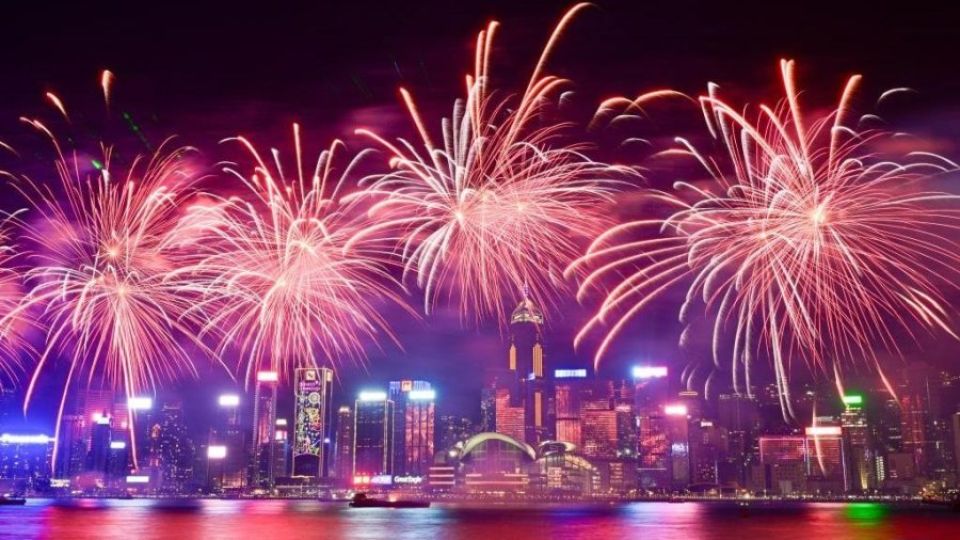February 29, 2024
HONG KONG – Industry players have applauded Hong Kong’s ramping up of efforts to organize mega events, yet remain skeptical about the impact of monthly pyrotechnic and drone shows on reviving the city’s battered tourism sector.
The comments came as Financial Secretary Paul Chan Mo-po announced the allocation of a HK$1.095 billion ($139.9 million) fund to support the Tourism Commission and Tourism Board in organizing mega events and activities.
During his delivery of the 2024-25 Budget, Chan revealed plans to host monthly fireworks and drone displays, along with light-and-sound shows known as A Symphony of Lights, to woo tourists, as part of efforts to boost domestic consumption and rejuvenate the tourism sector.
Song Haiyan, associate dean and chair professor at the School of Hotel and Tourism Management at the Hong Kong Polytechnic University, said, “This is a very good decision.”
“Hong Kong, once a shopping mecca, has seen its allure wane amid stiff competition from other shopping destinations. By hosting major events, the city is expected to attract a new type of tourist and diversify its tourism sector. The initiatives, including major music concerts, sports events, and exhibitions, will significantly boost tourist arrivals and benefit Hong Kong’s tourism industry over the next three to five years,” Song added.
The fireworks and drone shows could offer tourists something new, heightening visitors’ interest, Song noted. “However, I view this as a minor impact on revolutionizing or redirecting the future course of tourism in Hong Kong.”
Lawmaker Peter Shiu Ka-fai echoed Song, striking an upbeat note on the special administrative region’s strategy of hosting mega events. He said he believes this approach will give a shot in the arm to the catering, hotel, and retail sectors.
Allan Zeman, chairman of Lan Kwai Fong Group, said while regular events are beneficial, relying solely on fireworks is outdated and environmentally unfriendly. He called for embracing new technologies and creative shows to create unique experiences that could reposition Hong Kong as a vibrant, international city full of life.
He proposed hosting one major show and two smaller ones each week for a month. This frequency, he believes, will attract many attendees, particularly those who enjoy shows featuring stars and sports events, which could also be a significant draw.
Mathias Woo Yan-wai, executive director of Zuni Icosahedron, an international experimental theater company, questioned the effectiveness of the pyrotechnic and lights shows in attracting tourists.
“Creative concepts that can showcase Hong Kong’s uniqueness are essential for these shows, especially in the face of fierce competition from light shows in Chinese mainland cities,” Woo said. “Otherwise, it wastes Hong Kong’s resources given the ballooning deficit.”
Chan predicted a consolidated deficit of HK$101.6 billion for the current fiscal year, with fiscal reserves expected to decrease to HK$733.2 billion by March 31.
Ivan Chu Siu-lun, a member of the United Nations ESCAP Sustainable Business Network, said the latest fiscal budget is an extension of last year’s Policy Address. He described measures in the 2024-25 Budget, such as hosting fireworks and drone shows and implementing a tobacco tax, as “a drop in the ocean” in addressing the core issues plaguing Hong Kong’s economy, set against tepid growth, which is projected to be between 2.5 percent and 3.5 percent in real terms this year.
Local businesses only see marginal benefits from these events, he added.
“These plans are likely to have minimal effects in the face of broader economic challenges, requiring the SAR government to focus on investing in projects, attracting and cultivating talent, and drawing capital to tackle fundamental issues,” he added.
The finance chief said during the 2024-25 Budget delivery that more than 140,000 applications were approved under various talent programs over the past year, and about 100,000 of them have arrived in Hong Kong.


